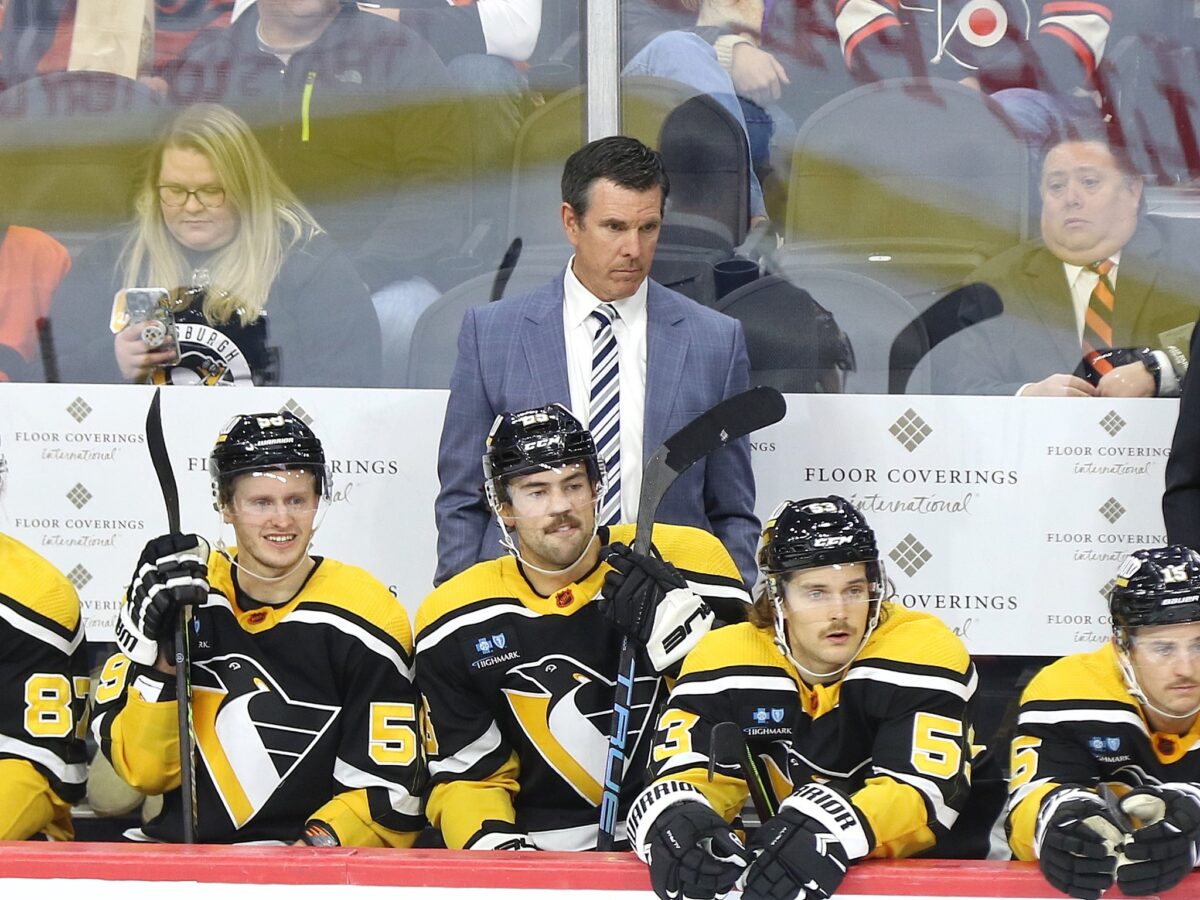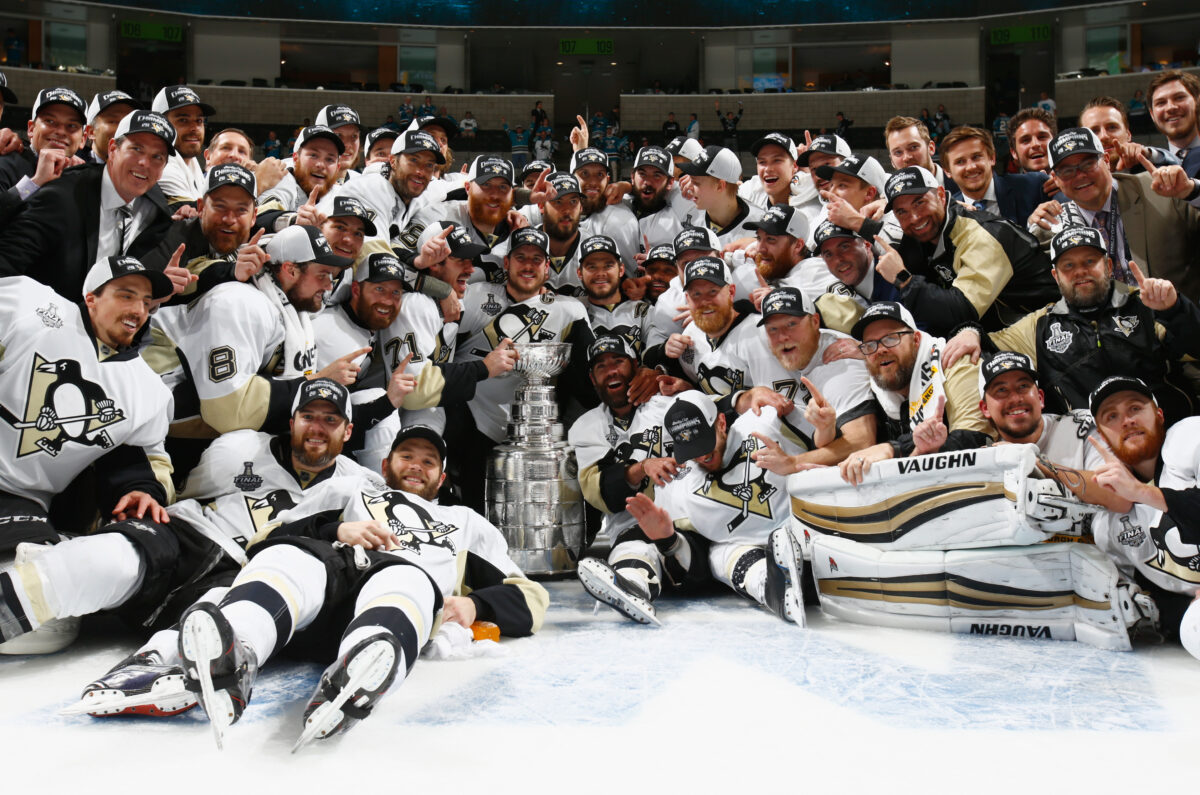Now that the dust has settled and the reckoning of the Pittsburgh Penguins’ first playoff miss in 16 years, analyses have begun to roll in on the meaning of this season and the future of the organization. General manager Ron Hextall and President of Hockey Operations Brian Burke have already been let go as the new owners at Fenway Sports Group try to rebound. The playoff elimination has wrought havoc on the organization to the point that it has become somewhat existential. Captain and franchise icon Sidney Crosby has become the subject of rumours about whether he’ll remain in a Penguins sweater. The contracts extended to Evgeni Malkin, Kris Letang, and Rickard Rakell have come under the metaphorical microscope, as they were the last big money moves Hextall and company made.

Organizational questions have arisen from top to bottom and have included nearly every player on the roster. Another team official whose role has come into question is head coach Mike Sullivan. Given his status within the Penguins organization, it’s unlikely he’ll be let go. However, his coaching philosophy should be thoroughly examined and changed drastically if the Penguins want to return to success.
Sullivan’s Pedigree Means Change Must Come From Him
Based on the numbers the Penguins have put up during his tenure, Sullivan is officially the best coach in franchise history. He arrived halfway through the 2015-16 season, and although his tenure began with a four-game losing streak, he led the Penguins to a 12-4-0 record in March and eventually a second-place finish in the Metropolitan Division, only behind the Presidents’ Trophy-winning Washington Capitals.
The Penguins rolled through the 2016 Stanley Cup Playoffs, dispatching the New York Rangers, Tampa Bay Lightning, and those same Capitals before vanquishing the San Jose Sharks in six games in the Final. The Penguins ended that season as Stanley Cup champions for the second time in the “Big Three” era, and Sullivan became only the third coach in franchise history to lead the team to the title after having been hired mid-season.

The following year, Sullivan led the team to the Stanley Cup yet again, beating the Nashville Predators in six games. Before the 2016-17 season began, he received a three-year contract extension that former GM Jim Rutherford lauded as a continuation of the success the team had the season before. Sullivan’s return on investment paid off immediately as the Penguins became back-to-back Stanley Cup champions for the first time since 1992-93. He became just the fourth coach in team history to reach 100 wins after a 4-2 victory over the Arizona Coyotes on Dec. 16, 2017. He recorded his 254th victory as Penguins’ coach on Oct. 16, 2021, moving past Dan Bylsma as the winningest head coach in franchise history.
His performance was rewarded again with another three-year contract, which was extended another three years just this past offseason. Sullivan and the Penguins thus became forever connected, and Letang has described Sullivan as the best coach he’s ever played for. Sullivan’s impact on the Penguins can be summarized by forward Jake Guentzel, as he stated:
“It’s actually what I like about him most. He never changes, wants to win as badly as ever. I’ve been so, so fortunate to have him as my coach. And his ability to communicate? It’s different than anyone else. Listen to the words he uses, how he speaks, your ears are naturally attracted to what he says. I love listening to him talk. He always, always uses the right words.”
Penguins’ forward Jake Guentzel on Mike Sullivan’s coaching philosophy. (From ‘How Mike Sullivan and the Penguins became a perfect fit: ‘He’s the only coach for this team,’ The Athletic, 11/10/2022.)
Empirical evidence clearly states that Sullivan is able to easily connect with his established stars, but it is exactly this connection that has contributed to the Penguins’ downfall in 2022-23.
Sullivan’s Mentality a Detriment to Organizational Development
The camaraderie that developed when Sullivan first arrived may have been key to those back-to-back championships, but in the years that followed, it has become one of the reasons the Penguins struggled in previous playoffs and missed the postseason this year. Although they put up a fight until what seemed like the very last moment, the statistics say that they were one of the weaker teams in the fray. They finished 14th in the league in power play percentage and failed to score big goals or secure victories when they needed them most. At the team’s end-of-season media availability, Sullivan was asked about the comparatively dismal power play, and he responded in a less-than-kind manner:
Related: 3 Reasons the Penguins Can’t Find Consistent Success in 2022-23
“I don’t think it was as bad as sometimes you guys perceive it to be. I think there were moments when we could have been better, but there were also long stretches where they were difference makers for us as far as winning games. I think our power play finished 14th in the league, if I’m not mistaken. Is that correct? Our net power play finished 10th. Is that correct? Okay, so when you subtract the goals against from the goals that they scored they’re tenth in the league. So they’re top third in the league. Actuals, right? Expected goals, depending on who you look at, they’re somewhere around third, fourth, fifth in the league…which suggests to us that process, they’re getting looks, right? They’re getting some pretty good looks.”
Penguins’ coach Mike Sullivan defends his team when asked about their power play during the 2022-23 season. (From ‘Mueller: Penguins need changes, not defiance, from Sullivan,’ Beaver County Times, 20/04/2023)
Defence of your team is a good thing in the face of some criticism, but refusing to address a clear issue can be problematic.
Sullivan’s defensiveness in the face of criticism is not the only problem that has arisen in the wake of the Penguins’ uncharacteristic playoff elimination. Another area of his philosophy that has come under scrutiny is his seeming over-reliance on the team’s established veterans and his unwillingness to employ line combinations that worked well in favour of traditional, played-out combinations.

Sullivan began an obsession with Jeff Carter that lasted much longer than anyone expected and came at the expense of some of the Pens’ top prospects looking to crack the roster and get some consistent playing time. Like I’ve said before, Alex Nylander only played six games, and other young players like Filip Hållander and Jonathan Gruden appeared in two or three games each. Sullivan also made questionable decisions with the lineup as a whole. When Rakell was acquired from the Anaheim Ducks at the trade deadline, he saw immediate success on a line with Crosby and Guentzel.
However, the play of Bryan Rust during that same period caused Sullivan to disrupt the top line’s chemistry and switch Rakell and Rust, a decision that never panned out as Sullivan intended. Even though Rust has been a 20-goal scorer each of the past four seasons, the decision to continually force him up the lineup has not been a good look.

Rust played well enough to earn himself a hefty six-year, $30.5 million deal in May 2022, but Sullivan should have realized long ago that his talents better serve the bottom six of the Penguins lineup rather than up top.
The Penguins have a lot to examine as a result of their unceremonious exit from the regular season in 2022-23. Everyone in the organization will be on the hot seat, even if that seemed unlikely before this season. Sullivan was recently given a vote of confidence, but he will have to change his methodology to keep his seat cool, or lukewarm at the very least.
